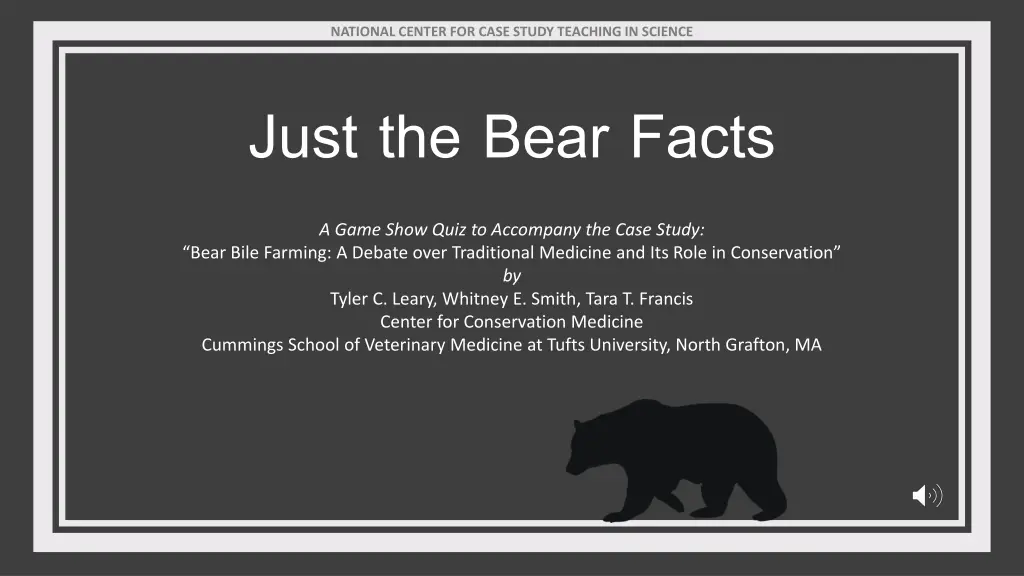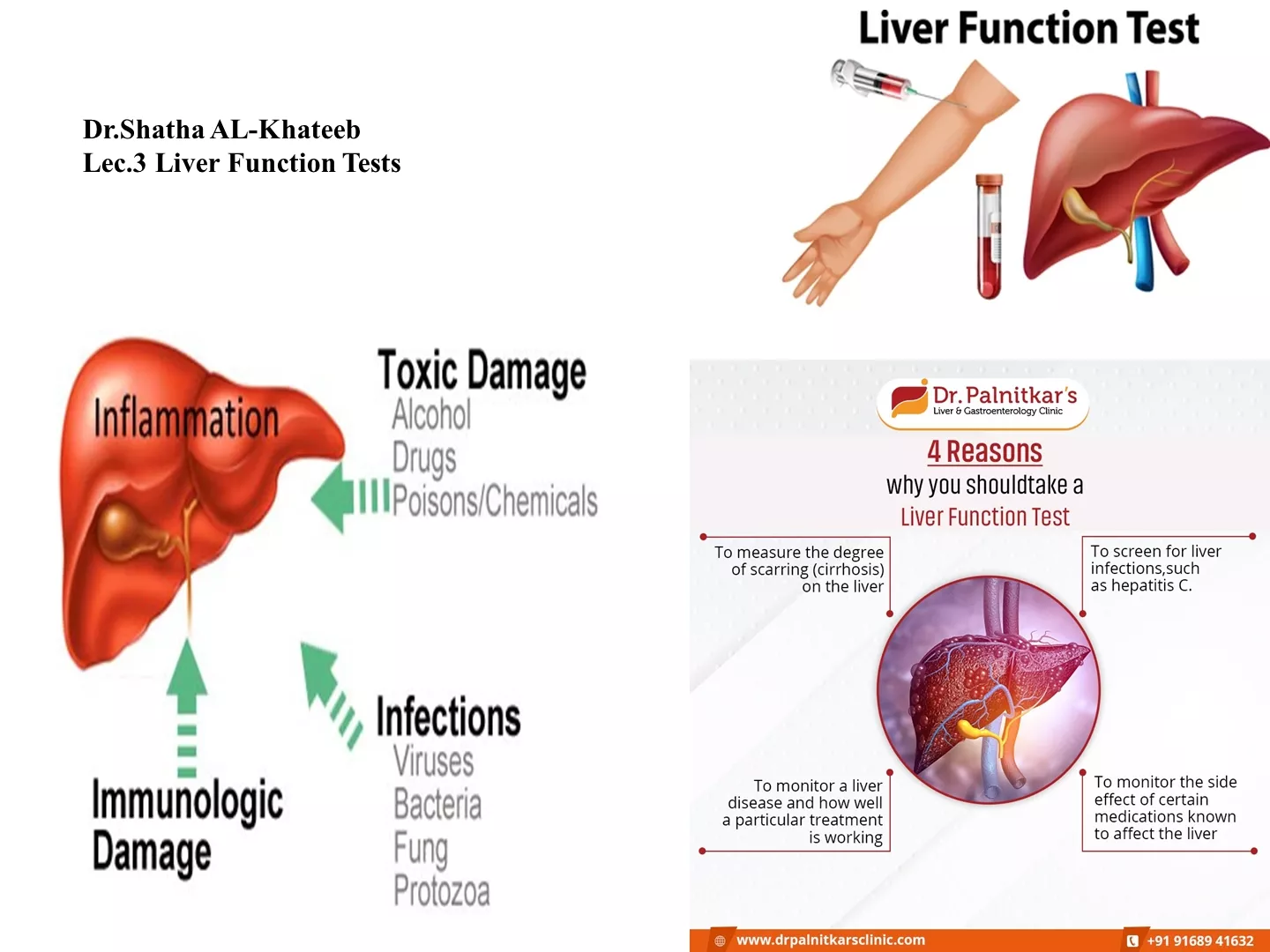
Bear Bile Farming Debate: Facts & Consequences
Explore the controversy surrounding bear bile farming in this insightful case study. Learn about its historical context, ethical implications, and the impact on conservation efforts. Delve into the debate over traditional medicine and its role in wildlife preservation. Test your knowledge with a game show quiz and discover key insights about this contentious issue.
Download Presentation

Please find below an Image/Link to download the presentation.
The content on the website is provided AS IS for your information and personal use only. It may not be sold, licensed, or shared on other websites without obtaining consent from the author. If you encounter any issues during the download, it is possible that the publisher has removed the file from their server.
You are allowed to download the files provided on this website for personal or commercial use, subject to the condition that they are used lawfully. All files are the property of their respective owners.
The content on the website is provided AS IS for your information and personal use only. It may not be sold, licensed, or shared on other websites without obtaining consent from the author.
E N D
Presentation Transcript
NATIONAL CENTER FOR CASE STUDY TEACHING IN SCIENCE Just the Bear Facts A Game Show Quiz to Accompany the Case Study: Bear Bile Farming: A Debate over Traditional Medicine and Its Role in Conservation by Tyler C. Leary, Whitney E. Smith, Tara T. Francis Center for Conservation Medicine Cummings School of Veterinary Medicine at Tufts University, North Grafton, MA
Social & Cultural Ethics & Values Historical Economic Stakeholders Gender $200 $200 $200 $200 $200 $200 $400 $400 $400 $400 $400 $400 $600 $600 $600 $600 $600 $600
When was the first recorded use of bear bile for medicinal purposes? Answer Answer
When was bear farming made illegal in China? Answer Answer
Government-sanctioned bear farming in China originally began in the 1980s A. to supplement the exotic pet trade B. to increase bear meat availability C. to reduce poaching of wild bears D. to supply restaurants with bear paws for soup Answer Answer
What were the two consequences of the drop in farmed bear bile prices? Answer Answer
1. Farmed bears being killed off 2. Increased demand for poaching
If you were told the overall prices of bear bile (wild and farmed) have declined over the past few years, what do you think would be the reason? Answer Answer
1. Increased education about animal welfare 2. Increased farming regulations
Name three reasons sun bears are valuable to the environment (aka keystone species) Answer Answer
1. Seed dispensers 2. Control forest pests such as termites 3. Engineer new tree cavities 4. Help drive the nutrient cycle
Name four stakeholders involved in the bear bile trade. Answer Answer
1. Owners of bear farms 2. Employees of bear farms 3. Consumers of bear bile 4. Animal protection groups 5. Government agencies 6. Bear rehabilitation centers 7. Practitioner of traditional Chinese medicine
List two stakeholders that may come into conflict and why. Answer Answer
Pro bear bile farming Pro bear bile farming Owners and employees of bear farms Consumers of bear bile Practitioners of traditional Chinese medicine Against bear bile farming Against bear bile farming Animal protection groups Bear rehabilitation centers
If bear farms were to shut down, the remaining bears would require alternate housing. What are the potential impacts of opening bear rehabilitation centers in communities? Answer Answer
Positive Impacts Positive Impacts Potential employment opportunities, increase in tourism, sale of produce as bear food, better infrastructure Negative Impacts Negative Impacts Potential for new diseases, human-wildlife conflict, expensive to provide full-time care for bears
Which country drives the demand for bear bile? Answer Answer
Which type of bear bile is believed to be more potent? Answer Answer
Does cultural importance have more of an effect on bear farming or bear conservation? Answer Answer
It depends! Factors: Wild caught, farmed, or synthetic Economic growth Growing conservation interests among younger generations
What are the three main uses of bear bile for men? Answer Answer
1. Cure a specific health problem 2. General Health Improvement 3. Entertainment
What is one reason women are less likely to use bile for entertainment purposes? Answer Answer
Women are more likely to stay at home to take care of the family
Based on what you learned, what would be a good marketing strategy to convince men to purchase less bile? Answer Answer
Bear bile farming results in controversy among the animal activist communities. Name three physiological or psychological impacts bear farming has on bear welfare. Answer Answer
Psychological Psychological Cage banging, pacing, rocking, circling, cage biting Physiological Physiological Self-inflicted injury on skin and other body parts Teeth and claws removed Infection, cancer
What is the difference between how domestic and wild animals are viewed and valued in eastern cultures and western cultures? Answer Answer
In the east, animals are viewed as having a utilitarian role where they are used for food, labor, and medicine. In the west, people are more removed from animals and tend to view them more affectionately.
What are some potential impacts if China were to impose regulations regarding the care of captive bears? Answer Answer
Increase in costs for farmers and eventually for consumers Bear farms could go out of business






















